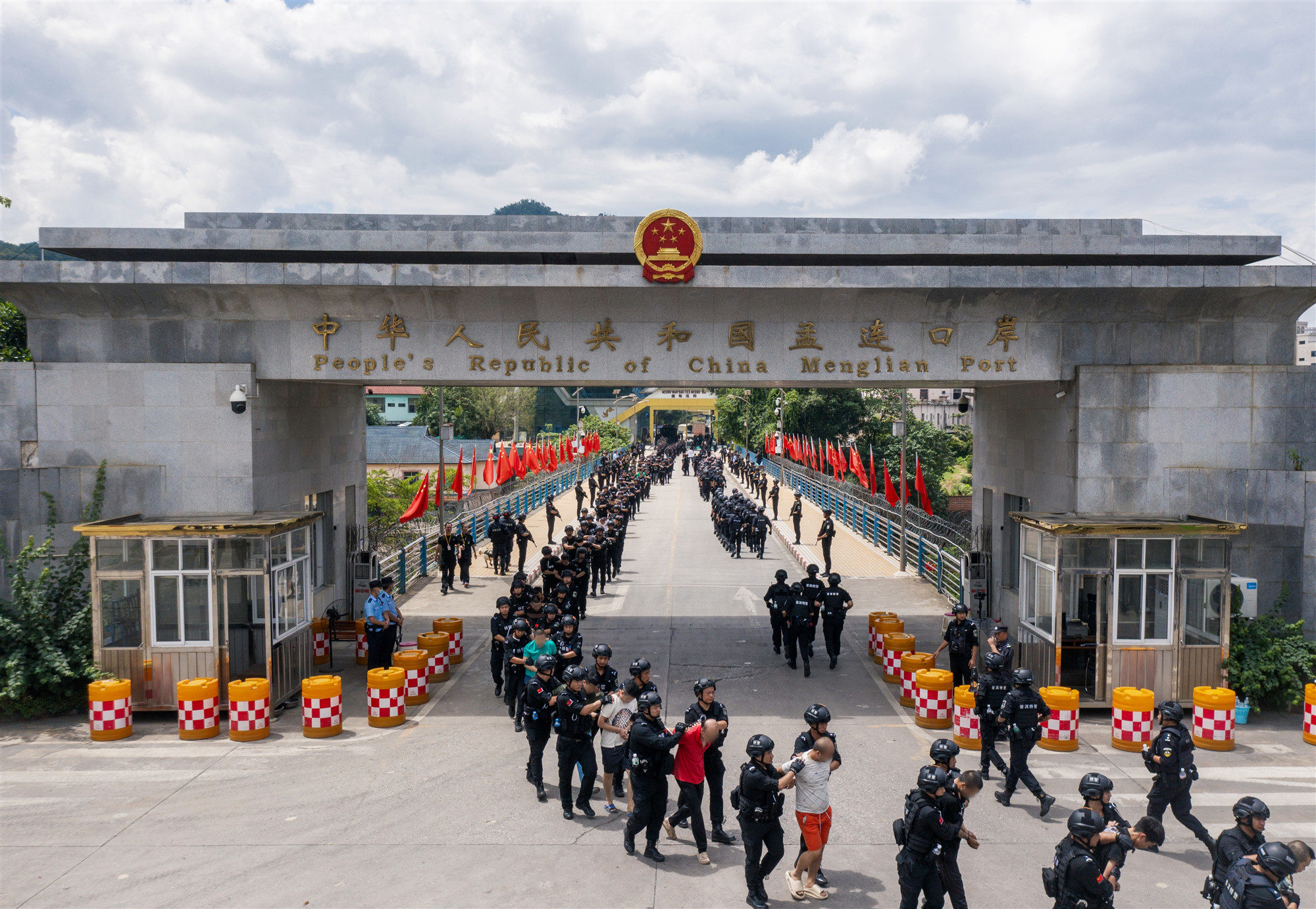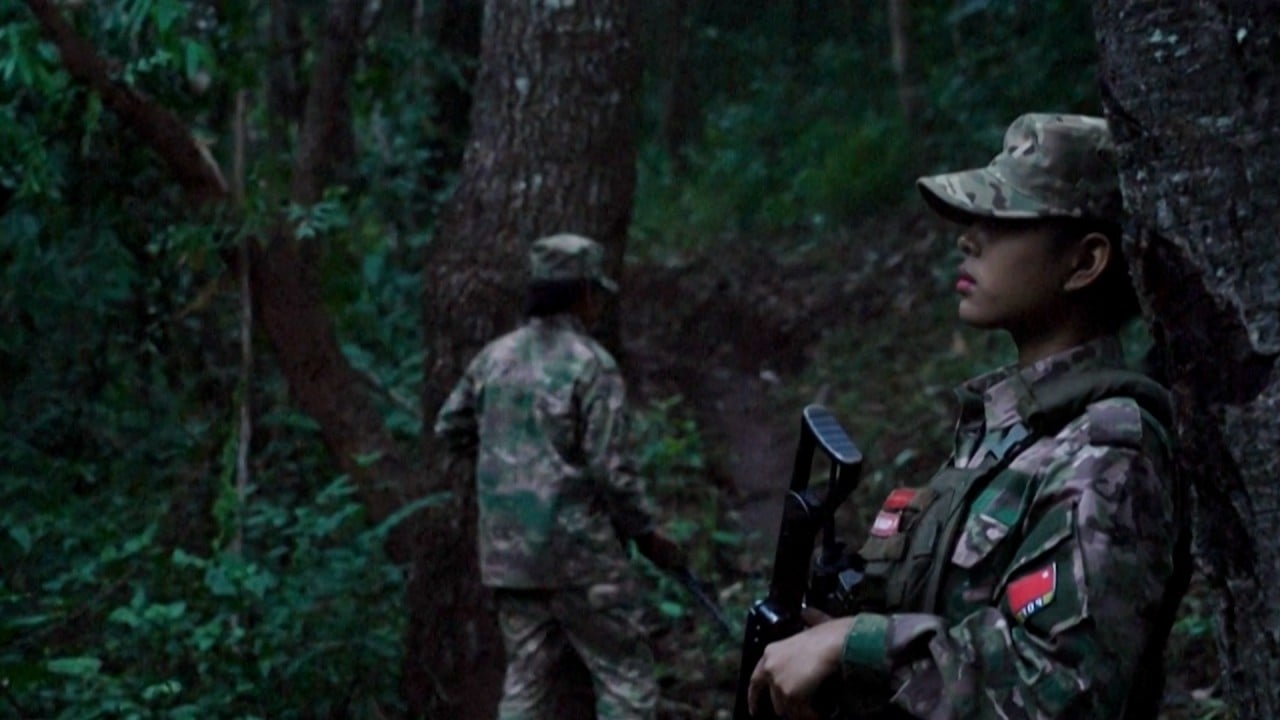Myanmar conflict: China unlikely to ‘pull the carpet’ on junta and accept resistance group’s olive branch
[ad_1]
Asean could be ‘caught off guard’ if the Myanmar junta were to collapse
Asean could be ‘caught off guard’ if the Myanmar junta were to collapse
Htwe Htwe Thein, an associate professor at Australia’s Curtin University, described the statement as a wise and timely move by the NUG, as China appeared to be running out of patience with the coup leaders.
“The junta has failed to stabilise the political situation in Myanmar and appears unable or disinterested in tackling the scam centres in the border areas between the two countries,” she said.
China’s Minister of Public Security Wang Xiaohong also held a video call last Friday with Myanmar’s Home Affairs Minister Lieutenant-General Yar Pyae to bring up similar concerns.
Jason Tower, Myanmar programme director for the United States Institute of Peace think tank, said that with “China increasingly hedging its bets in Myanmar, the NUG’s statement comes at a pivotal moment”.

“It might be read as a signal from the NUG that China has other, more sustainable options to secure [its] infrastructure in Myanmar,” Tower said, noting that with the ongoing military defeat suffered by the junta in its fight against the insurgent coalition, it was clear the junta is unable to protect its bases and townships.
The alliance said last month it had seized 422 bases and seven towns from Myanmar’s army since its October 27 operations. Last Friday, it said it had gained control of Laukkai, a key northern town bordering China.
In a major development highlighting China’s pivotal role in resolving the conflict, Beijing said on Friday it had facilitated an “immediate ceasefire” between the Myanmar military and the insurgent groups.
“The two sides agreed to an immediate ceasefire, to disengage military personnel and resolve relevant disputes and demands through peaceful negotiations,” Chinese foreign ministry spokeswoman Mao Ning said.
Could Myanmar’s military be deposed by armed groups fighting across the country?
Could Myanmar’s military be deposed by armed groups fighting across the country?
Hunter Marston, a Southeast Asia researcher at the Australian National University (ANU), said that while it was still uncertain if the junta could recover from its battlefield losses, the NUG had “rightly seized on the moment to try to shift Beijing’s policies at a time when they might be able to influence them”.
Through intelligence that China had gathered from its nationals returning from scam syndicates in Kokang, it was “crystal clear” to Beijing the extent to which Myanmar’s army has relied on criminal activities targeting Chinese nationals to sustain itself, Tower said.
“This has most certainly raised concerns in China,” Tower added, noting that Beijing increasingly viewed its partnership with the junta as “a dangerous and reckless strategy”, especially the risks to infrastructure critical for Chinese energy security.
At the core of this infrastructure is the 793km Myanmar-China gas pipeline, which began operations in 2013, starts in Kyaukpyu city in Myanmar’s Rakhine State and ends in China’s Yunnan region.
The NUG statement also “makes a case to the Chinese side to forgo meaningless talks with the military”, Tower said, and instead deepen partnership with the NUG and other actors fighting the military.
These include the People’s Defence Force, the armed wing of NUG, and Ethnic Armed Organisations (EAOs).
China’s likely response
“Unfortunately for the NUG, it is unlikely that China will respond positively to this olive branch,” Tower said, noting that Chinese companies with significant business interests in Myanmar have instead taken advantage of the junta’s weakness and sealed preferential deals.
Last month, Chinese state-owned Citic Group and the junta government signed a supplementary agreement for the Kyaukphyu deep water port in the restive western Rakhine state, where many of the insurgent attacks in recent years happened.
Myanmar scam networks evade Chinese crackdown as battle along border continues
Myanmar scam networks evade Chinese crackdown as battle along border continues
The firm will maintain a 70 per cent stake in the port as agreed by both sides in 2018, which is expected to give China access to the Bay of Bengal as an alternative route for oil imports.
China’s strategy for the Myanmar conflict has been to focus on mediation efforts targeting the powerful EAOs in the north and on the military while ignoring other parties, according to Tower.
While China is motivated by a desire to manage the impact of the conflict such that it is favourable to Beijing’s interests, the strategy could risk dividing the anti-junta resistance, Tower said.
“[It also] helps the junta buy time to perpetrate further atrocities,” he added.
Thailand accused of ‘piggybacking’ Myanmar by leading talks with junta
Thailand accused of ‘piggybacking’ Myanmar by leading talks with junta
ANU’s Marston said while the NUG statement was unlikely to weaken Beijing’s support for the junta, it is expected to have a greater effect and fuel debate about “China’s failing Myanmar policy”.
“[Beijing] is likely to continue supporting the junta even as it expands contact with the NUG,” Marston said, adding that Chinese pressure on the junta to negotiate could be instrumental in ending the conflict.
“If Beijing chooses to use its influence, it could swiftly pull the carpet out from under the junta by suspending current investment projects,” Marston added.
Additional reporting by Agence France-Presse
[ad_2]
Source link


